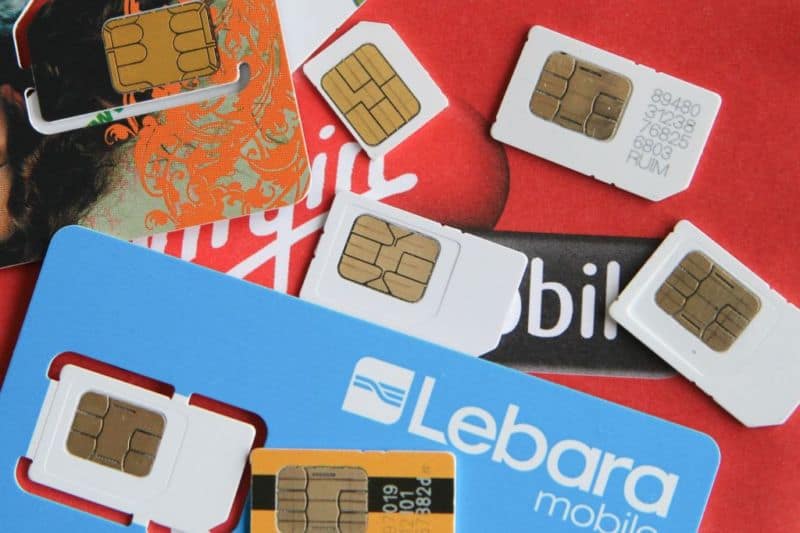Find out the week’s top mobile stories from around the world.
This week.. Facebook pivots to privacy, Google can now automatically delete your activity data, the sim swap the US isn’t using and much more.

Facebook pivots to privacy, pushing brands from native to performance advertising
The Drum
Facebook has announced a ‘fundamental shift’ in how it is develops products with privacy in mind, unveiling a series of changes that will likely push brands away from native and display advertising further into a conversational and commerce-driven strategy.
Following the lead of Apple, which has been pushing its own commitment to privacy in commercials since March, Facebook chief executive Mark Zuckerberg declared ‘the future is private’ on stage at its F8 conference in San Jose, California, today (30 April).
Read more…
Google can now automatically delete your location, app, and search activity data
Venture Beat
Last August, the Associated Press reported that various Google apps store the timestamped locations of the devices on which they’re installed. Some of this collection occurs regardless of which privacy settings are enabled — Google Location Services, Find My Device, Search, and Maps continuously record telemetry data. But other entries can be viewed and manually deleted on Android, iOS, and the web, and Google says it’s committed to streamlining the auditing process with new tools.
Read more…
Developers can now verify mobile app users over WhatsApp instead of SMS
Tech Crunch
Facebook today released a new SDK that allows mobile app developers to integrate WhatsApp verification into Account Kit for iOSand Android. This will allow developers to build apps where users can opt to receive their verification codes through the WhatsApp app installed on their phone instead of through SMS.
Today, many apps give users the ability to sign up using only a phone number — a now popular alternative to Facebook Login, thanks to the social network’s numerous privacy scandals that led to fewer people choosing to use Facebook with third-party apps.
Read more…
The sim swap the US isn’t using
Ars Technica
Foreign phone carriers share data to stop SIM swap fraud; US carriers drag their feet.
Around a year ago, André Tenreiro was called into a meeting between the chief technology officer of the phone carrier he worked for—one of the largest in Mozambique—and an executive of the country’s largest bank. The latter had seen an escalating pattern of fraud based on so-called SIM swap attacks, where hackers trick or bribe a phone company employee into switching the SIM card associated with a victim’s phone number. The attackers then use that hijacked number to take over banking or other online accounts. According to Tenreiro, the bank had seen more than 17 SIM swap frauds every month. The problem was only getting worse.
Read more…
US lobbies mobile phone firms in anti-Huawei campaign
The Guardian
US lobbying against the use of Huawei in British 5G phone networks will step up when the embassy in London hosts an event on Tuesday afternoon to discuss the situation with telecoms companies operating in the UK.
The extraordinary meeting comes a day after an official at the US state department warned publicly that any use of Huawei technology would prompt a reassessment of intelligence sharing with the UK.
Read more…
Secure by design: All you need to know about the consumer IoT security legislation
Computer World UK
A new piece of legislation regarding consumer IoT security was proposed this week by Digital Minister, Margot James, aimed at securing all connected devices from cyber attacks ‘by design’.
The consultation, which is scheduled to run until 5 June 2019, is open to device manufacturers, IoT service providers, mobile application developers, retailers, academics, technical experts and anyone with an interest in consumer IoT security.
Read more…
Over-the-top messaging allows Australia to stop regulating SMS services
Zdnet
The Australian Competition and Consumer Commission (ACCC) has announced its draft decision to continue regulating the nation’s mobile terminating access service (MTAS) for voice services, but no longer for SMS services. According to the regulator, with access to and competition from over-the-top messaging services such as WhatsApp, SMS regulation is no longer required.
Read more…
Five Banks Now Let Users Verify Their Identities Using a Blockchain App
Coindesk
Five Canadian banks now let customers digitally verify their identities in a “privacy-enhanced and secure way” using blockchain technology.
For the effort, Canadian Imperial Bank of Commerce (CBIC), Royal Bank of Canada (RBC), Scotiabank, Toronto–Dominion (TD) Bank and Desjardins Group have integrated with a mobile app called Verified.Me, developed by SecureKey Technologies.
Read more…
Cryptocurrency thefts, scams, and fraud top $1.2 billion in Q1 2019
Venturebeat
Cryptocurrency thefts, scams, and fraud seem like they’re subsiding as the technology goes mainstream, right? Wrong. Crypto criminals and fraudsters stole more than $1.2 billion in the first quarter of 2019, according to a report by cryptocurrency security firm CipherTrace.
It’s no wonder a “tsunami of global anti-money laundering (AML) and counter-terror financing (CTF) regulations” is scheduled to take effect this year.
Read more…
Mobile money users drop in huge numbers over taxes as masses cry out
PML Daily
KAMPALA – The mobile money tax levied by the government has proved to be detrimental to the sector as citizens have labeled it not only discriminative but expensive as well.
In the few months following the introduction of the levy in July 2018, there was a noted decline in the number of total revenues collected, as well as mobile money transactions.
According to a new report by Twaweza in a research brief titled Banking, mobile money and taxes: Ugandans’ experiences of and opinions on mobile money, at least 79 percent of citizens say that they think mobile money services are too expensive.














